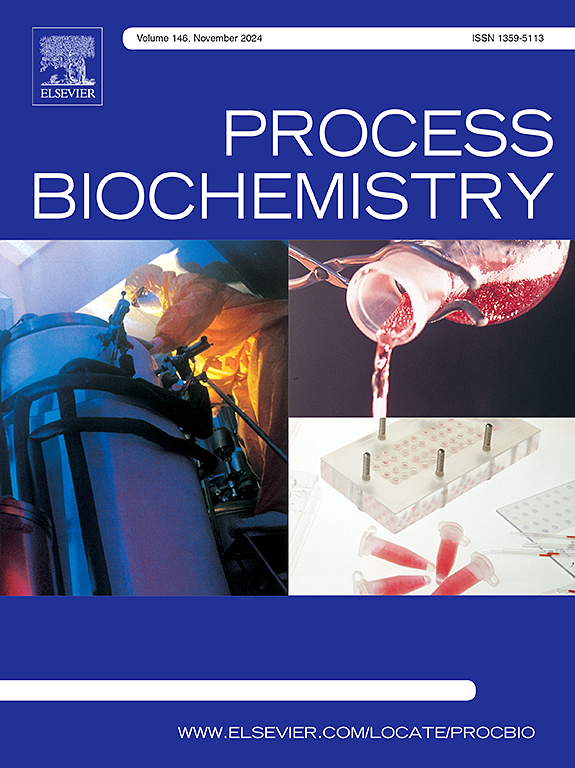A review of the Thiopaq process for biological hydrogen sulfide removal from sour gases
IF 3.7
3区 生物学
Q2 BIOCHEMISTRY & MOLECULAR BIOLOGY
引用次数: 0
Abstract
Different technologies have been employed for hydrogen sulfide removal from sour gases, whether natural gas, biogas, or other gases, based on market requirements and environmental regulations. Several biological desulfurization technologies have been established for sulfur recovery such as Thiopaq technology. It is considered an ecological, and environmentally sustainable solution that has been studied, developed and commercialized since the end of the past century in different industries especially for biogas desulfurization. In addition, the process offers a decarbonation simultaneously with sulfur recovery. The current work reviews Thiopaq from different aspects that correlate all the technology pillars such as microorganisms, the valuable biosulfur, technology economics, the main operating parameters in addition to a brief description of the sections presented with chemistry of main and side reactions and the technology advantages and disadvantages. Future work should consider deeper research of the viability of technology for decarbonation. In addition, employing mathematical modeling and computation fluid dynamics are crucial for better understanding of bioreactors, the cornerstone of biological desulfurization, in terms of aeration and redox control. Other recommendations are presented.
Thiopaq 生物脱除酸性气体中硫化氢工艺综述
根据市场要求和环境法规,人们采用了不同的技术来去除酸性气体(无论是天然气、沼气还是其他气体)中的硫化氢。目前已开发出几种用于硫回收的生物脱硫技术,如 Thiopaq 技术。该技术被认为是一种生态和环境可持续发展的解决方案,自上世纪末以来已在不同行业进行了研究、开发和商业化,特别是在沼气脱硫方面。此外,该工艺还能在脱碳的同时进行硫回收。目前的工作从不同方面对 Thiopaq 进行了回顾,这些方面涉及所有技术支柱,如微生物、有价值的生物硫、技术经济性、主要操作参数,此外还简要介绍了主要反应和副反应的化学反应部分以及技术的优缺点。今后的工作应考虑深入研究脱碳技术的可行性。此外,在曝气和氧化还原控制方面,采用数学模型和流体动力学计算对于更好地理解生物脱硫的基石--生物反应器至关重要。还提出了其他建议。
本文章由计算机程序翻译,如有差异,请以英文原文为准。
求助全文
约1分钟内获得全文
求助全文
来源期刊

Process Biochemistry
生物-工程:化工
CiteScore
8.30
自引率
4.50%
发文量
374
审稿时长
53 days
期刊介绍:
Process Biochemistry is an application-orientated research journal devoted to reporting advances with originality and novelty, in the science and technology of the processes involving bioactive molecules and living organisms. These processes concern the production of useful metabolites or materials, or the removal of toxic compounds using tools and methods of current biology and engineering. Its main areas of interest include novel bioprocesses and enabling technologies (such as nanobiotechnology, tissue engineering, directed evolution, metabolic engineering, systems biology, and synthetic biology) applicable in food (nutraceutical), healthcare (medical, pharmaceutical, cosmetic), energy (biofuels), environmental, and biorefinery industries and their underlying biological and engineering principles.
 求助内容:
求助内容: 应助结果提醒方式:
应助结果提醒方式:


